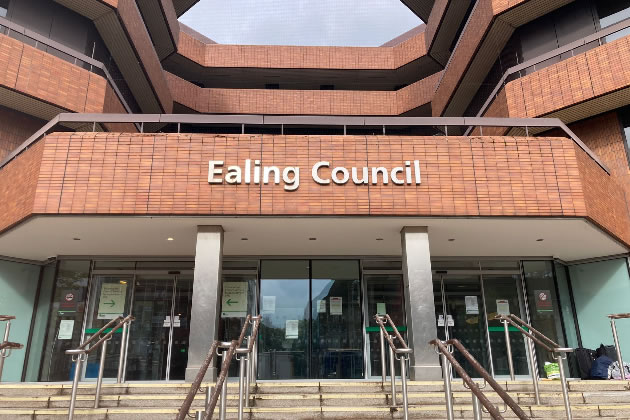Ealing Council Plans Cull of Housing Waiting List
Reduction of priority bands means over 5,000 families could be removed

Council received 243 calls about rats in 2022.
January 28, 2023
Thousands of people could be kicked off Ealing Council’s social housing register because they have no chance of being allocated a home. Out of the 12,000 families waiting for social housing in the borough, 700 have been living in temporary housing for more than 5 years.
At Ealing Council’s cabinet meeting on Wednesday (25 January), councillors agreed to change the rules of the housing register, affecting thousands of households in the borough. The changes come as the council predicts that demand for social housing will soar due to the cost-of-living crisis.
Under the proposals, Ealing Council will reduce the number of priority bands from four to three by removing Band D, which will affect nearly half of the housing register – or 5,561 households. Most of these households do not fall into any of the other priorities within the other bands, and because of this, they can’t even bid for most social housing homes on the register.
Councillor Steve Donnelly, the cabinet member for an inclusive economy, told councillors, “Since this allocation policy was last reviewed in 2012, in the absence of any credible national housing policy, we have seen the demand for housing increase way ahead of the capacity of ourselves or other social housing providers.
“Band D has no realistic prospect ever of being allocated a home and under this proposal, we want to be honest with people currently in Band D and everybody who may seek to apply for housing.
“There are more than enough people in Bands A, B and C to soak up such provision of housing as comes along. At the same time, we want to ensure that anybody in Band D who should in fact have been promoted to Band C or above in the interim period is reassessed to ensure that everybody is in the right place.”
Councillor Shital Manro added, “We are anticipating that there will be a much more greater demand as a result of the cost of living crisis and as private sector rents go up quite sharply in London, we are anticipating that our service will come under pressure in terms of people coming to us for housing.”
The majority of households in Band D, and some within Band C, will be removed from the housing register once the changes are implemented. These households will still be eligible for council advice and assistance on housing but will not be allowed on the housing register.
Under the current scheme, any household living in temporary accommodation, where the lease has ended, is given greater priority than households who have been homeless for a long period of time. The new proposals seek to change this by giving greater priority to those who have been living in temporary accommodation or have been homeless, for five or more years.
There are 700 households who have been in temporary accommodation for more than five years. By changing the priority of the housing register, Ealing Council hopes it will reduce the waiting times families face for permanent homes.
Over the past decade, the number of new households being given social housing has fallen by nearly half. In 2011, the council let 1,012 social homes but in 2021 that figure was just 526.
The council are also changing the income eligibility, under the current scheme households have to earn under £60,000 to join for any bedroom size. Now, if households require a one-bedroom home they must earn less than £35,000, two-bed homes require an income of less than £45,000 and those hoping for a three-bedroom home needs an income of less than £50,000 per year.
Households who are looking for four-bedroom properties and above have to have an income lower than £60,000 to be allowed to join the Housing Register. A public consultation by Ealing Council said that 62 per cent of respondents agreed with the decision to create income bands for different homes.
Megan Stanley - Local Democracy Reporter